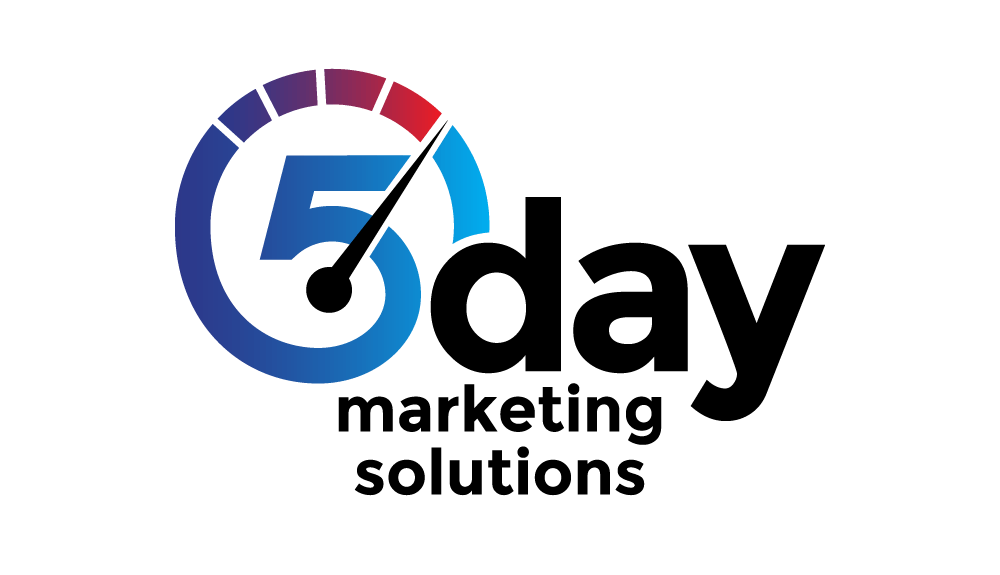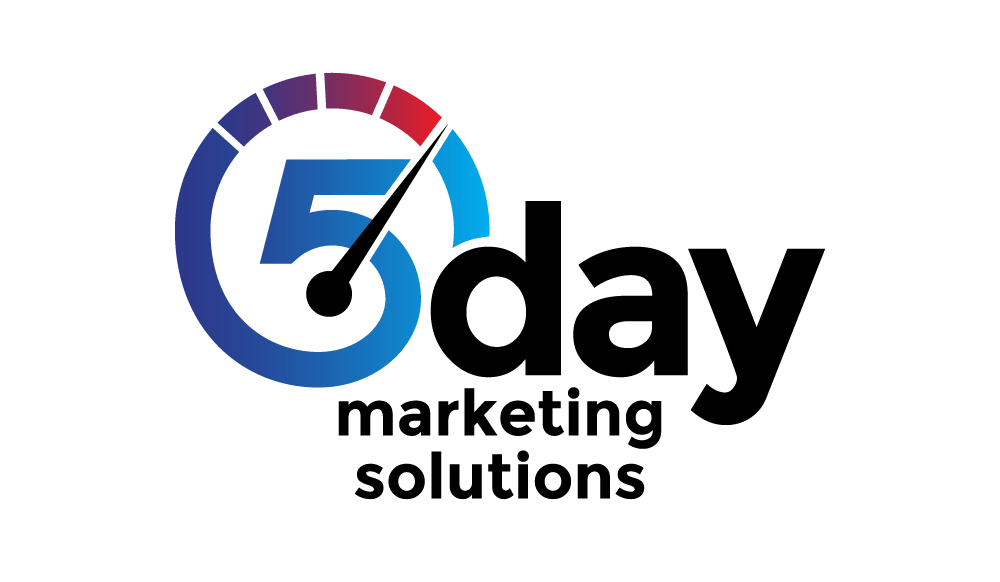How to Attract Local Audiences Using Social Media Tools
In today's digital landscape, connecting with local audiences is essential for small and medium-sized businesses looking to grow their customer base and increase revenue. While global reach has its advantages, focusing on your local community often delivers the most immediate and sustainable results. Social media platforms offer powerful tools specifically designed to help businesses connect with local audiences—and the best part? You can see meaningful results in as little as five days with the right approach.
This comprehensive guide will walk you through proven strategies to attract and engage local audiences using social media management tools, helping you transform your online presence and drive real-world foot traffic and sales.
Choose the Right Social Media Platforms for Local Marketing
Not all social media platforms are created equal when it comes to local marketing. Understanding where your specific audience spends their time online is the first critical step toward effective local social media marketing.
Identify Where Your Target Audience Spends Their Time Online
Different demographics gravitate toward different platforms. Before investing time and resources into any social media channel, research where your ideal local customers are most active:
•Facebook: Still dominates for local businesses, particularly for audiences aged 30-65+. With 2.9 billion monthly active users and robust local business features, Facebook remains essential for community-based marketing.
•Instagram: Ideal for visually-oriented businesses targeting audiences aged 18-44. Local restaurants, boutiques, salons, and experience-based businesses thrive here.
•TikTok: Rapidly growing platform with strong appeal to audiences under 35. Local businesses finding creative ways to showcase personality and behind-the-scenes content are seeing tremendous engagement.
•LinkedIn: Best for B2B local businesses or professional services targeting other businesses or professionals in your area.
•Nextdoor: Specifically designed for neighborhood connections, making it invaluable for hyperlocal marketing.
Example: A local bakery in Portland discovered that while they had been focusing primarily on Facebook, their target demographic of young professionals and food enthusiasts was much more active on Instagram. After shifting their content strategy to Instagram-first with mouth-watering photos of their daily specials and behind-the-scenes baking videos, they saw a 45% increase in engagement and a noticeable uptick in first-time customers mentioning their Instagram presence—all within just five days of implementing the new strategy.
Evaluate Platform Demographics for Effective Outreach
Each platform has unique demographic characteristics that can inform your strategy:
Platform Primary Age Groups Key Features for Local Marketing
Facebook 30-65+ Business Pages, Local Groups, Events, Marketplace
Instagram 18-44 Location Tags, Stories, Reels, Shopping
TikTok 16-34 Trending Sounds, Location Tags, Hashtag Challenges
LinkedIn 25-55 Local Business Networking, Professional Events
Nextdoor 30-65+ Neighborhood Focus, Recommendations, Business Pages
Understanding these demographics helps you prioritize where to focus your efforts for maximum local impact.
Explore Community-Focused Features on Social Platforms
Each platform offers specific features designed to enhance local connections:
•Facebook Groups: Create or participate in community groups relevant to your local area
•Instagram Location Tags: Tag your business location in all posts to improve local discoverability
•Facebook Events: Promote in-store events to local audiences
•Nextdoor Business Posts: Share updates specifically with nearby neighborhoods
•LinkedIn Local Events: Network with other local professionals and businesses
Assess User Engagement Levels on Each Platform
Before committing fully to any platform, test content across different channels and measure engagement metrics:
•Which platforms generate the most comments from local users?
•Where do you see the highest share rates for your content?
•Which platform drives the most website traffic or store visits?
•Where do you receive the most direct messages from potential customers?
Track these metrics for at least five days to identify clear patterns before finalizing your platform strategy.
Align Your Business Goals With Chosen Social Media
Different platforms excel at different business objectives:
•Awareness: Instagram and TikTok for visual brand recognition
•Community Building: Facebook Groups and Nextdoor
•Direct Sales: Instagram Shopping and Facebook Marketplace
•Event Promotion: Facebook Events and LinkedIn Events
•Customer Service: Facebook Messenger and Instagram DMs
Select platforms that best support your primary business goals while considering your resource constraints.
Create Localized Content That Resonates With Audiences
Once you've identified the right platforms, creating content that speaks directly to your local audience becomes your next priority.
Focus on Neighborhood Highlights and Events in Content
Content that celebrates your local community creates an authentic connection with nearby customers:
•Spotlight neighboring businesses you collaborate with
•Share photos from local events your business participated in
•Create posts about local landmarks or attractions near your business
•Highlight seasonal changes or events specific to your area
•Share local news that impacts your community (with a positive, non-political angle)
Example: A small hardware store in Austin created a "Weekend Project" series on social media, featuring DIY projects specifically designed for local homes and architecture styles. They included tips for dealing with the specific soil type in central Texas for gardening projects and weatherproofing recommendations for the local climate. This hyperlocal content generated 3x more engagement than their generic product posts and led to customers specifically requesting items featured in these local projects.
Use Storytelling to Connect With Local Communities
Stories create emotional connections that generic promotional content cannot match:
•Share your business's origin story and local roots
•Feature profiles of local staff members and their community connections
•Highlight customer success stories from local patrons (with permission)
•Document your business's involvement in community initiatives
•Create "day in the life" content showing your local operations
Personal narratives humanize your brand and foster community trust.
Incorporate Local Keywords to Improve Search Visibility
Optimize your social content for local search with strategic keyword usage:
•Include your city, neighborhood, or region name in post text
•Use location-specific hashtags (#DowntownSeattle, #ChicagoFoodie)
•Mention local landmarks or well-known areas near your business
•Reference local events, festivals, or traditions
•Include region-specific terminology or slang familiar to locals
These keywords help your content appear in local searches both within social platforms and in general search engines.
Showcase Testimonials From Local Customers or Clients
Social proof from local customers carries significant weight:
•Share written testimonials with location information included
•Create quote graphics featuring positive local reviews
•Produce short video testimonials from satisfied local customers
•Repost and respond to positive mentions from local customers
•Create before/after content showing local success stories
Ensure you have proper permission before sharing customer content, and always tag them when appropriate.
Leverage User-Generated Content to Build Community Ties
Encourage customers to create content about their experience with your business:
•Create a branded hashtag for customers to use when posting
•Run photo contests for customers to share their experiences
•Repost customer content that tags your location
•Ask questions that prompt customers to share their experiences
•Offer small incentives for customers who post about your business
User-generated content not only provides free marketing but also strengthens community bonds and reaches new local audiences through customers' networks.
Engage With Local Influencers to Broaden Your Reach
Local influencers can significantly extend your reach within specific communities.
Identify Influencers Who Align With Your Brand Values
Not all influencers with large followings will be right for your business:
•Look for content creators who regularly post about your local area
•Focus on micro-influencers (5,000-30,000 followers) with highly engaged local audiences
•Verify that their content style and values align with your brand
•Check their engagement rates, not just follower counts
•Review their previous brand collaborations for authenticity
Example: A new fitness studio in Miami partnered with three local fitness micro-influencers rather than one major influencer. Each had between 8,000-15,000 followers but maintained engagement rates above 8% with audiences specifically in the Miami area. The studio invited them to experience complimentary classes in exchange for authentic content sharing. Within five days, the campaign generated over 45 direct inquiries from local residents and 12 new membership sign-ups—a much higher conversion rate than their previous traditional advertising efforts.
Cultivate Authentic Relationships With Local Creators
Approach influencer relationships as partnerships rather than transactions:
•Engage with their content before proposing collaborations
•Invite them to experience your business firsthand
•Offer value beyond monetary compensation
•Develop long-term relationships rather than one-off promotions
•Allow creative freedom within brand guidelines
Authentic relationships lead to more genuine content that resonates with local audiences.
Collaborate on Promotional Campaigns That Appeal Locally
Design influencer campaigns with specific local appeal:
•Create limited-time offers exclusively for the influencer's followers
•Develop content series highlighting local favorites or hidden gems
•Collaborate on local event coverage or community initiatives
•Design location-specific challenges or activities
•Cross-promote with complementary local businesses
Campaigns with local relevance generate higher engagement and conversion rates.
Monitor Influencer Impact on Audience Engagement
Track key metrics to evaluate influencer partnership effectiveness:
•Engagement rates on influencer content featuring your business
•Traffic to your website or social profiles from influencer referrals
•Redemption rates for influencer-specific promotional codes
•New follower acquisition during and after campaigns
•In-store visits or sales attributable to influencer content
Use these insights to refine future influencer collaborations.
Encourage Influencer Partnerships for Content Sharing
Maximize content value through strategic sharing arrangements:
•Establish clear agreements for content reposting rights
•Create content that benefits both your brand and the influencer
•Develop co-branded content series that can live on multiple channels
•Arrange cross-promotion schedules to maximize visibility
•Consider content licensing for extended usage rights
Well-structured sharing agreements extend content lifespan and reach.
Use Social Media Advertising to Target Local Areas
Organic reach has limitations. Strategic paid advertising can significantly amplify your local visibility.
Set Up Geo-Targeted Ad Campaigns on Popular Platforms
Most major platforms offer powerful location targeting options:
•Facebook/Instagram: Target by city, zip code, or even custom radius around specific locations
•Google Ads: Target people searching for businesses "near me" or in specific locations
•Snapchat: Use Geofilters to target specific locations
•Twitter: Target by designated market area or postal code
•LinkedIn: Target by geographic region for B2B local marketing
Start with a small budget test across platforms to determine which delivers the best ROI for your specific business.
Experiment With Different Ad Formats for Local Appeal
Different ad formats serve different local marketing objectives:
•Carousel Ads: Showcase multiple products, locations, or services
•Story Ads: Create immersive, full-screen experiences
•Video Ads: Demonstrate products or services in action
•Collection Ads: Feature products with direct purchase options
•Lead Generation Ads: Collect contact information from interested local customers
Example: A local pet grooming service tested three different ad formats on Facebook—static images, carousel ads showing before/after transformations, and short video clips of happy pets during grooming sessions. With a modest budget of $50 spread across five days, they discovered that the carousel before/after format generated 2.8x more appointment bookings than static images and 1.5x more than videos. This insight allowed them to reallocate their monthly ad budget to the most effective format.
Analyze Audience Insights to Refine Ad Strategies
Platform analytics provide valuable data for optimization:
•Review demographic information of users engaging with your ads
•Identify peak engagement times specific to your local audience
•Analyze device usage patterns to optimize ad delivery
•Examine behavioral patterns and interests for better targeting
•Track conversion paths from ad to action
Use these insights to continuously refine targeting parameters and creative approaches.
Adjust Budgets According to Campaign Performance
Not all campaigns will perform equally—allocate resources strategically:
•Start with small test budgets across multiple approaches
•Identify top-performing ads based on key performance indicators
•Gradually shift budget toward highest-performing campaigns
•Consider dayparting to focus spending during peak engagement hours
•Adjust spending for seasonal or local event-based fluctuations
Even small budgets can deliver significant results when strategically allocated.
Optimize Ad Content for Local Relevance and Clarity
The content of your ads matters as much as the targeting:
•Include local landmarks or recognizable settings in ad imagery
•Use location-specific language and references
•Feature real customers from your community (with permission)
•Highlight promotions relevant to local events or seasons
•Ensure calls-to-action are clear and location-specific
Ads that feel specifically created for your local audience consistently outperform generic content.
Host Community Events Promoted via Social Media
Online engagement can translate to real-world connections through strategic event marketing.
Plan Events That Cater to Local Interests and Needs
Create gatherings that provide genuine value to your community:
•Educational workshops related to your products or services
•Collaborative events with complementary local businesses
•Seasonal celebrations with local themes
•Charity fundraisers supporting local causes
•Customer appreciation events with exclusive offers
Events should align with both your business objectives and community interests.
Promote Your Events With Engaging Content Beforehand
Build anticipation through strategic pre-event content:
•Create teaser videos or images highlighting event benefits
•Share behind-the-scenes preparation content
•Feature profiles of speakers, partners, or special guests
•Develop countdown content with increasing details
•Offer early-bird incentives for registration or attendance
Start promotion at least five days before smaller events and several weeks before larger ones.
Create Event Pages to Facilitate RSVPs and Sharing
Leverage platform-specific event tools:
•Facebook Events: Create official event pages with all details
•LinkedIn Events: For professional or B2B gatherings
•Eventbrite: For ticketed events with registration capabilities
•Instagram Event Countdown: Use story features to build anticipation
•Google Business Profile: Add events to your business listing
Ensure all event pages include complete information: date, time, location, description, any costs, what to bring, and what attendees will gain.
Example: A local bookstore created a Facebook Event for their author signing, complete with the author's bio, book synopsis, and clear instructions for purchasing books in advance. They promoted the event through a series of engaging posts, including a short video interview with the author and behind-the-scenes preparation. By encouraging attendees to share the event with friends, they expanded their reach organically. The result was a standing-room-only event with 40% of attendees being first-time visitors to the store.
Share Live Updates During the Event for Online Engagement
Extend your event's reach beyond physical attendees:
•Post real-time photos and videos to Stories
•Create live streams of key moments or presentations
•Share attendee reactions and testimonials as they happen
•Post event highlights with relevant hashtags
•Tag partners, speakers, and (with permission) attendees
Live content creates FOMO (fear of missing out) and drives interest in future events.
Follow Up With Attendees Through Social Interactions
Maintain momentum after the event concludes:
•Create recap posts highlighting key moments
•Share professional photos or videos from the event
•Tag and thank attendees, partners, and contributors
•Create polls or feedback opportunities about the event
•Announce future events while interest is high
Effective follow-up converts one-time attendees into loyal community members.
Monitor and Analyze Engagement Metrics for Improvement
Data-driven decision making is essential for continuous improvement of your local social media strategy.
Use Analytics Tools to Track Social Media Performance
Each platform offers native analytics with valuable insights:
•Facebook Insights: Page performance, audience demographics, post reach
•Instagram Insights: Story performance, profile visits, audience growth
•Twitter Analytics: Tweet engagement, audience interests, impression growth
•LinkedIn Analytics: Visitor demographics, update performance, follower trends
•Google Analytics: Social referral traffic, conversion paths, user behavior
Supplement platform analytics with third-party tools for deeper insights and cross-platform comparison.
Measure Success Through Engagement, Reach, and Shares
Focus on metrics that indicate genuine connection with your local audience:
•Engagement Rate: Likes, comments, and shares relative to followers
•Reach Growth: Expansion of content visibility over time
•Share Rate: Proportion of audience amplifying your content
•Click-Through Rate: Traffic driven to your website or landing pages
•Conversion Rate: Actions taken after engaging with social content
Track these metrics weekly to identify trends and opportunities.
Adjust Strategies Based on Data Insights and Feedback
Use performance data to continuously refine your approach:
•Double down on content types that generate highest engagement
•Adjust posting times based on when your audience is most active
•Refine targeting parameters for paid campaigns based on performance
•Modify content themes in response to audience feedback
•Reallocate resources from underperforming tactics to successful ones
Example: A local coffee shop noticed through their analytics that posts featuring their baristas and the stories behind their specialty drinks consistently outperformed generic product photos. By shifting their content strategy to focus 60% on the "people behind the products," they saw a 78% increase in overall engagement and a 23% increase in mentions of specific menu items by customers in-store—all within the first five days of implementing this data-driven strategy shift.
Stay Updated on Social Media Trends and Audience Shifts
The social media landscape evolves rapidly:
•Follow industry blogs and resources for platform updates
•Monitor changing demographics across platforms
•Experiment with new features as platforms release them
•Observe how competitors adapt to platform changes
•Survey your customers periodically about their social media habits
Staying current ensures your strategy remains effective as platforms and user behaviors evolve.
Continuously Refine Content and Outreach Approaches
Social media success requires ongoing optimization:
•A/B test different content formats, captions, and visuals
•Experiment with posting frequency and timing
•Try various call-to-action approaches
•Test different voice and tone styles within your brand guidelines
•Refine hashtag strategies based on reach and engagement data
Even small optimizations can compound to deliver significant improvements over time.
Conclusion
Attracting local audiences through social media isn't just about broadcasting messages—it's about creating meaningful connections with the community you serve. By strategically selecting platforms, creating resonant local content, partnering with local influencers, utilizing targeted ad placement, hosting community events, and continuously analyzing performance, you can build a powerful local presence that drives real business results.
The most successful local businesses approach social media as a two-way conversation rather than a marketing megaphone. They listen as much as they speak, adapt based on community feedback, and consistently deliver value before asking for anything in return.
Remember that meaningful results can begin to appear in as little as five days with the right approach, but building a truly engaged local community is an ongoing process that rewards consistency, authenticity, and genuine community investment.
Ready to transform your local social media presence? Start by implementing these strategies today, and watch your local audience grow from passive observers to active community advocates.
Need help implementing these strategies for your business? Our team specializes in creating customized social media management plans that deliver results in just five days. We offer expert consulting and brand monitoring to ensure your local marketing efforts succeed. Contact us today for a free consultation and take the first step toward building a stronger local presence online.



